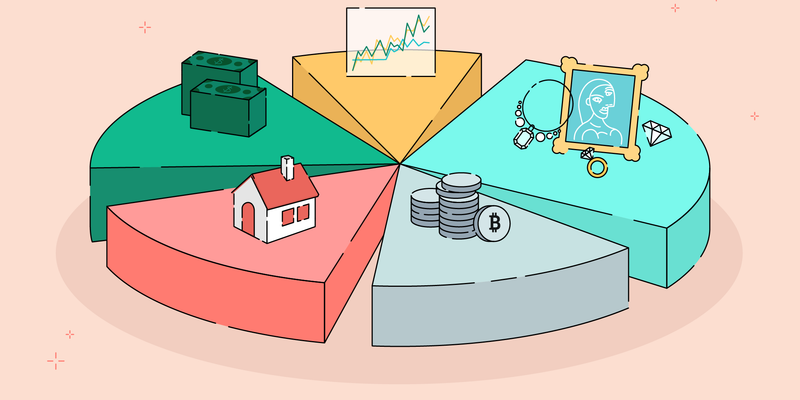Understanding sleeping patterns and how they can affect your health
Many research studies have revealed that your circadian rhythm controls much more than just your sleep. But what does this mean for your health?
Chronobiology is a field of science that studies periodic or cyclical phenomena in all living organisms, how they adapt to solar and lunar rhythms existing in nature, and their link to time. These cycles are known as biological rhythms.
Circadian rhythm is an internal process that regulates your sleep cycle and repeats roughly every 24 hours.

An increasing number of research studies have revealed that your circadian rhythm controls much more than just your sleep. You typically should sleep in harmony with your circadian rhythm but that might not always be possible. If you have a job that has rotating shifts, or if you work through the night, it might be challenging to sleep before 10 PM. But what does this mean for your health?
Chronotypes and sleep
Chronotypes have been the basis for several studies surrounding sleep patterns. The most common chronotypes have been identified as the morning lark or early birds, the intermediate, and the night owls with delayed sleep.
Suggestions point to using this genetic predisposition in the choice of work, but this is not always practically possible. There could also be other root causes behind why someone might be a night owl. But beyond chronotypes, what if your job prevents you from having a normal circadian rhythm?
The main thing to remember is that you must prioritise sleep.
By this, I mean that you must ensure that you do not push your body beyond what is absolutely necessary.
There are several things that you can do to make your body healthy:

Source: Shutterstock
Optimal protein at every single meal
Recently, a client of mine – a doctor herself – mentioned that she does not make the effort to consider if each meal has protein. When you work odd shifts, your circadian rhythm is off, and therefore, you are prone to having adrenal rhythms and unregulated cortisol. This can impact the rhythm of almost every hormone.
This can increase the possibility of blood sugar imbalance, give rise to hunger as the hunger hormone ghrelin increases, and reduce the ability to feel satiated as it reduces leptin. For stable adrenal function, you need optimal protein at every single meal, and maybe even a small protein snack just before you sleep. Anyone who has suboptimal sleep or unnatural circadian rhythm requires more protein than others. This must be step one.

Source: Shutterstock
Check your nutrient status
Poor sleep patterns and unnatural rhythms can be a source of immune stress. Poor sleep itself is a stress on the body. It impacts immune function, and your body can end up requiring more nutrients than normal. This can increase your requirement for nutrients such as vitamin D, B12, iron, zinc, selenium, and Omega-3.
One of the things that you must ensure if you have poor sleep is to keep a watch on these nutrients and include plenty of foods with these nutrients in your diet.
The best way to do this is by simply following a diet that is not restrictive or processed. Include a wide range of colourful fruits and vegetables, in combination with clean proteins and healthy fats. Including several portions of colourful fruits and vegetables increases your intake of phytonutrients that are antioxidant-rich. This can mop up free radicals and combat oxidative stress from poor sleep, and have a significant positive impact on your body.
Adopt your routine that is fixed
This may not always be possible, but one of the ways that shift workers can prevent serious health impact is by creating their own rhythm and routine. What I mean by this is that if you have a fixed work schedule where you work till midnight every single night, then create a routine where your sleep is from midnight to 8 AM every single day, and have fixed timing for your meals.
This is a great way to avoid disruption to your blood sugar levels, adrenal function, or hormones.
If your shift changes every two weeks, try to create a rhythm within that space of the next two weeks based upon your work timings. If you have very erratic timing, create a schedule where your mealtimes are fixed within your waking hours. What matters is that there is some structure within your chaotic day.

Limit light exposure in your eyes
If you are awake and working on your screen when it is dark outside, or if you are in a room with strong artificial light, it can be helpful to wear blue light blockers.
There has been some debate about research involving light and circadian rhythm as some researchers have started to debunk this as a myth to market sleep aids. The problem though is that people who have extremely unnatural rhythms are very sensitive. It would be helpful to reduce the backlight on your device, change to night mode, wear amber blue light blockers, and limit light exposure when absolutely not necessary.
You might find that when you are constantly in unnatural rhythms and exposed to strong blue light, your tendency to scroll meaninglessly through social media increases. The moment you start doing that, you also expose yourself to stimulating content, emotional fluctuations, and the tendency to make wrong food choices.

Get ample exercise
Body movements release brain neurotransmitter hormones such as beta-endorphins, dopamine, and serotonin. Beta-endorphins are your body’s natural painkillers. Dopamine keeps you happy and motivated. Serotonin makes you feel at peace and relaxed.
Dopamine can be released even with mild forms of body movement.
Exercise can both increase dopamine and up-regulate dopamine receptors in your brain. Serotonin is the precursor to melatonin, and is very important when it comes to sleep – both to help you sleep and keep your anxiety levels low. When you have poor sleep timings, your quality of sleep can also be poor. Exercise should be non-negotiable, as it helps you to improve the quality of whatever sleep you get, even if you get less than optimal sleep.
Sleep is not something that can be outsmarted. If you have options to adopt more natural rhythms, the benefits are so many that they will only help your body to improve your health.
Edited by Kanishk Singh








